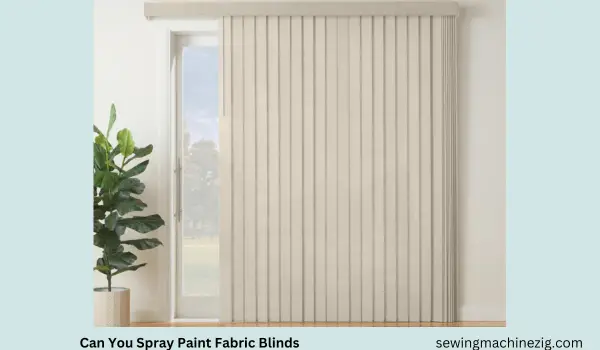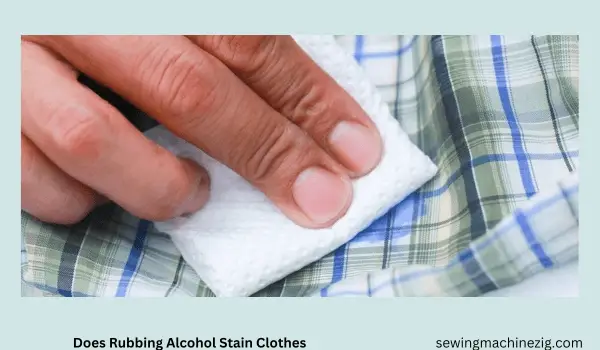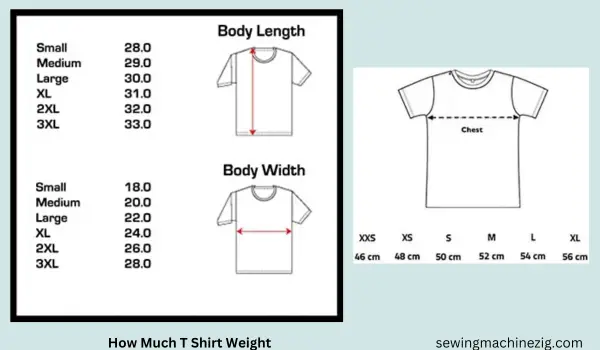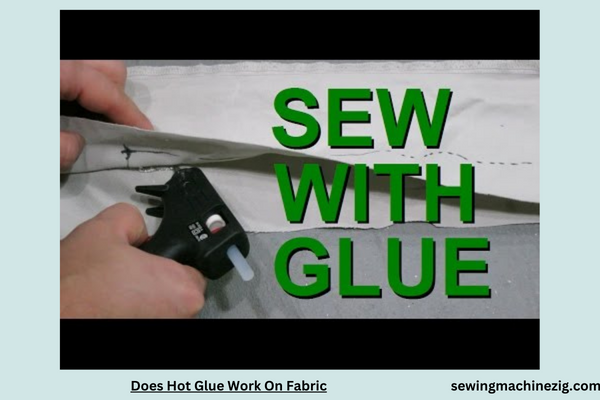
Curious crafters often wonder, does hot glue work on fabric? This inquiry opens up a realm of creative possibilities in the crafting world. The adhesive strength of hot glue meets the delicate and varied nature of fabrics, making it a go-to for many DIY projects.
From quick fixes to intricate designs, understanding the dynamics of this pairing is crucial for achieving durable and aesthetically pleasing results. Let’s unravel the versatility of hot glue on fabric and explore the tips and tricks that make this combination a reliable choice in the crafting toolkit. “does hot glue work on fabric“
Does Hot Glue Work On Fabric Detailed Answer
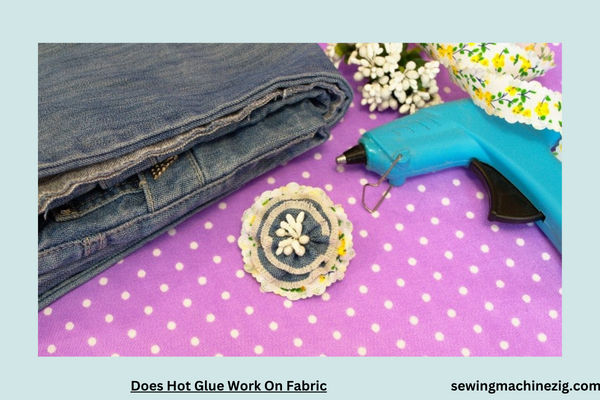
Embarking on a creative journey often involves testing the limits of various materials and tools. One common query that arises in the crafting realm is, “does hot glue work on fabric?” This question leads us into a realm of possibilities where the versatility of hot glue can transform the way we approach fabric-related projects.
In this detailed exploration, we will unravel the nuances of using hot glue on fabric, providing insights, tips, and creative ideas for anyone curious about the potential of this adhesive in their crafting endeavors.
Understanding the Dynamics: How Does Hot Glue Work on Fabric?
Hot glue, or hot melt adhesive, is a thermoplastic adhesive that becomes liquid when heated and solidifies upon cooling. It is renowned for its quick bonding capabilities and stronghold. When it comes to fabric, the effectiveness of hot glue depends on the type of fabric, the temperature of the glue, and the application method.
Choosing the Right Fabric:
Not all fabrics are created equal, and some work better with hot glue than others. Fabrics with a tight weave, such as cotton or denim, tend to adhere well to hot glue. However, sheer or delicate fabrics like silk may be more challenging due to their fine texture. Before diving into your project, it’s essential to test a small, inconspicuous area to gauge how the fabric responds to the hot glue.
Temperature Matters:
The temperature of the hot glue gun plays a crucial role in the bonding process. Most hot glue guns have adjustable temperature settings. For fabrics, it’s generally recommended to use a lower temperature setting to prevent damage. High temperatures can potentially melt or weaken certain fabrics, so it’s wise to start with a lower setting and adjust based on your specific fabric and project requirements.
Prepping the Fabric:
To enhance the adhesion of hot glue to fabric, consider prepping the fabric surface. This can involve cleaning the fabric to remove any dirt, dust, or oils that might hinder the bonding process. Additionally, if the fabric has a loose weave, applying a thin layer of interfacing or another stabilizing material to the back can provide more surface area for the glue to grip.
Application Techniques:
The way you apply hot glue to fabric matters. Instead of directly applying hot glue to the fabric, you can put it on the back of embellishments, patches, or other elements you want to attach. This not only ensures a more even distribution of glue but also prevents potential damage to delicate fabrics.
Pros and Cons of Using Hot Glue on Fabric:
Pros:
- Quick Bonding: Hot glue dries rapidly, allowing for fast project completion.
- Versatility: Hot glue works well with various fabric types, especially those with tight weaves.
- No Sewing Required: For those who don’t sew, hot glue provides an alternative for fabric bonding.
Cons:
- Not Suitable for All Fabrics: Delicate fabrics may be prone to damage or may not adhere well.
- Limited Flexibility: Hot glue can become brittle over time, making it less suitable for flexible fabrics.
- Temperature Sensitivity: High temperatures can cause certain fabrics to melt or weaken.
Creative Applications: Unique Ways to Use Hot Glue on Fabric
- Embellishments and Appliqués:
- Hot glue is excellent for attaching embellishments like sequins, beads, or patches to fabric. It provides a secure bond without the need for intricate sewing.
- No-Sew Hems:
- In a pinch, hot glue can be used to create temporary hems. While not as durable as sewing, it can serve as a quick fix for wardrobe malfunctions or last-minute alterations.
- Costume and Prop Making:
- For costume designers and DIY prop enthusiasts, hot glue offers a convenient and speedy way to attach fabric elements, ensuring that your creations stay intact during use.
- Decorative Fabric Projects:
- Hot glue can be a valuable tool for crafting decorative fabric projects, such as fabric-covered photo frames, lampshades, or even custom-designed throw pillows.
- Repairing Fabric Items:
- From reattaching loose seams to fixing frayed edges, hot glue can serve as a temporary or even permanent solution for repairing fabric items.
Tips and Tricks for Successful Bonding:
- Use the Right Temperature:
- Adjust the temperature of your hot glue gun based on the fabric you are working with. Lower temperatures are generally safer for most fabrics.
- Work in Small Sections:
- When bonding larger fabric surfaces, work in small sections to ensure that the glue doesn’t cool before you can press the fabric into place.
- Press and Hold:
- After applying the hot glue, press the fabric firmly into place and hold it until the glue sets. This ensures a secure bond.
- Consider Reinforcement:
- For items that will undergo stress or movement, consider reinforcing the hot glue bond with additional stitching for added durability.
Summary:
In the realm of crafting, the question of whether hot glue works on fabric unveils a spectrum of creative possibilities. While not a one-size-fits-all solution, hot glue proves itself as a versatile and rapid adhesive for various fabric-related projects. By understanding “does hot glue work on fabric” the dynamics of hot glue on fabric, choosing the right materials, and employing proper application techniques, crafters can harness the power of hot glue to bring their fabric creations to life.
Does Hot Glue Work On Clothes
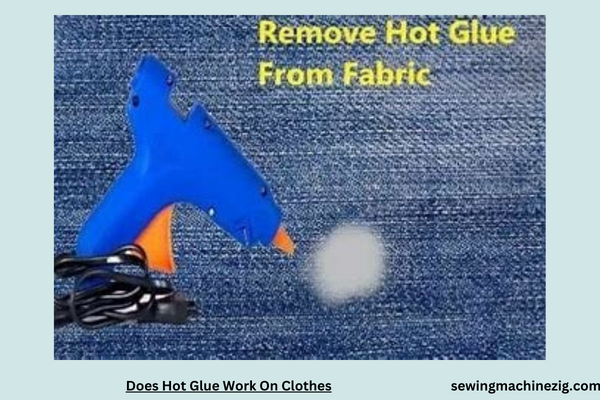
Understanding the Dynamics: How Does Hot Glue Interact with Clothes?
Hot glue, also known as hot melt adhesive, is a thermoplastic adhesive that turns into a liquid when heated and solidifies upon cooling. When it comes to clothes, the success of using hot glue depends on several factors, including the type of fabric, the temperature of the glue, and the intended application.
Choosing the Right Clothes:
The type of fabric plays a crucial role in determining whether hot glue is a suitable adhesive. Clothes made from natural fibers like cotton or denim, as well as synthetic fabrics like polyester, generally respond well to hot glue. However, delicate fabrics such as silk or sheer materials may require extra care, as the heat from the glue gun could potentially damage them.
Temperature Matters:
Most hot glue guns have adjustable temperature settings, allowing you to control the heat output. When working with clothes, it’s advisable to start with a lower temperature setting and increase if needed. Too high a temperature can not only damage certain fabrics but may also pose a risk of burns during application.
Prepping the Clothes:
To optimize the bond between hot glue and clothes, it’s beneficial to prepare the fabric surface. Ensure that the clothes are clean and free from any dirt or residues that might hinder adhesion. If the fabric is loose or porous, applying a thin layer of interfacing to the back can provide additional stability.
Application Techniques:
The way you apply hot glue to clothes can impact the overall result. Instead of directly applying hot glue to the fabric, consider putting it on the back of embellishments, patches, or elements you want to attach. This method not only ensures a more even distribution of glue but also minimizes the risk of visible glue marks on the fabric.
Pros and Cons of Using Hot Glue on Clothes:
Pros:
- Quick Bonding: Hot glue sets rapidly, allowing for efficient project completion.
- Versatility: Hot glue can adhere well to a variety of fabrics commonly found in clothing, making it a versatile option for DIY projects.
- No Sewing Required: For those who aren’t adept at sewing, hot glue provides an alternative for attaching embellishments or making quick fixes on clothes.
Cons:
- Not Suitable for All Fabrics: Delicate or heat-sensitive fabrics may not be ideal for hot glue, as it could cause damage.
- Limited Flexibility: Hot glue can become brittle over time, impacting its flexibility. This may be a consideration for clothes that require movement or bending.
- Visible Glue Marks: Depending on the application technique, there’s a risk of visible glue marks on the fabric, especially if not applied carefully.
Creative Applications: Unique Ways to Use Hot Glue on Clothes
- Embellished Apparel:
- Jazz up plain t-shirts, jeans, or jackets by adding hot glue-applied embellishments. This can include sequins, beads, or fabric patches for a personalized touch.
- Quick Fixes and Repairs:
- Hot glue can serve as a temporary fix for loose hems, small tears, or missing buttons. It’s a handy solution for last-minute wardrobe malfunctions.
- Customized Accessories:
- Personalize accessories like hats, scarves, or shoes by attaching fabric elements with hot glue. It’s an easy way to add a unique touch to your accessories.
- Upcycling Projects:
- Turn old clothes into trendy fashion pieces through upcycling. Hot glue can be used to attach new fabric elements, transforming the old into something fresh and stylish.
- Costume and Cosplay Creations:
- For costume designers and cosplayers, hot glue offers a quick and secure way to attach fabric elements, ensuring that your creations stay intact during wear.
Tips and Tricks for Successful Hot Glue Bonding with Clothes:
- Test on Scrap Fabric:
- Before applying hot glue to your main clothing item, conduct a test on a scrap piece of the same fabric to ensure compatibility.
- Adjust Temperature Settings:
- Start with a lower temperature on your hot glue gun and gradually increase it if necessary. This prevents potential damage to the fabric.
- Apply Glue to Embellishments:
- For a neater finish, apply hot glue to the back of embellishments or patches rather than directly onto the fabric.
- Press and Hold:
- After applying hot glue, press the fabric together firmly and hold until the glue sets. This ensures a strong and secure bond.
- Reinforce Stress Points:
- For clothes that may undergo stress or movement, consider reinforcing the hot glue bond with additional stitching at stress points for added durability.
Summary:
In the world of DIY and crafting, the question of whether hot glue works on clothes opens up a plethora of creative possibilities. Understanding the dynamics of this combination, including fabric type, temperature considerations, and application techniques, empowers crafters to explore innovative projects with confidence. The versatility of hot glue makes it a valuable tool for quick fixes, embellishments, and personalized touches in the realm of clothing customization.
Conclusion
In the realm of crafting and DIY projects, the question of whether hot glue works on fabric receives a resounding affirmative. This versatile adhesive proves its mettle, providing a quick and sturdy solution for various fabric applications. “does hot glue work on fabric“
From temporary hemming to securing embellishments, hot glue adds a layer of convenience to creative endeavors. Whether you’re crafting home decor or experimenting with textile art, hot glue emerges as a reliable ally in bringing fabric-based visions to life with ease and efficiency.
FAQs: Does Hot Glue Work On Fabric?
Q1: Can I use hot glue on fabric for crafting projects?
A1: Yes, hot glue is a versatile adhesive suitable for fabric crafting. It creates a strong bond, making it ideal for quick fixes or securing embellishments on fabric surfaces.
Q2: Will hot glue hold up on different fabric types?
A2: Hot glue generally adheres well to a variety of fabrics, including cotton, denim, and felt. However, for delicate fabrics, it’s recommended to perform a test on a small, inconspicuous area. does hot glue work on fabric
Q3: Is hot glue suitable for hemming fabric temporarily?
A3: Absolutely. Hot glue can serve as a temporary solution for hemming fabric, providing a quick and easy way to adjust lengths without the need for sewing. does hot glue work on fabric
Q4: Can hot glue be washed off fabric easily?
A4: No, hot glue tends to be resistant to washing. It forms a durable bond, making it suitable for fabric items that may undergo occasional washing, such as costume pieces or accessories.
Q5: Does hot glue work well with fabrics in DIY home decor projects?
A5: Yes, hot glue is a popular choice for fabric-related DIY home decor. It allows for secure attachment of fabric elements to various surfaces, adding a personalized touch to your creations.
Q6: Is there a specific type of hot glue recommended for fabric?
A6: It’s advisable to use low-temperature hot glue for fabric projects, as it reduces the risk of damaging or melting delicate fabrics during the bonding process. “does hot glue work on fabric“

